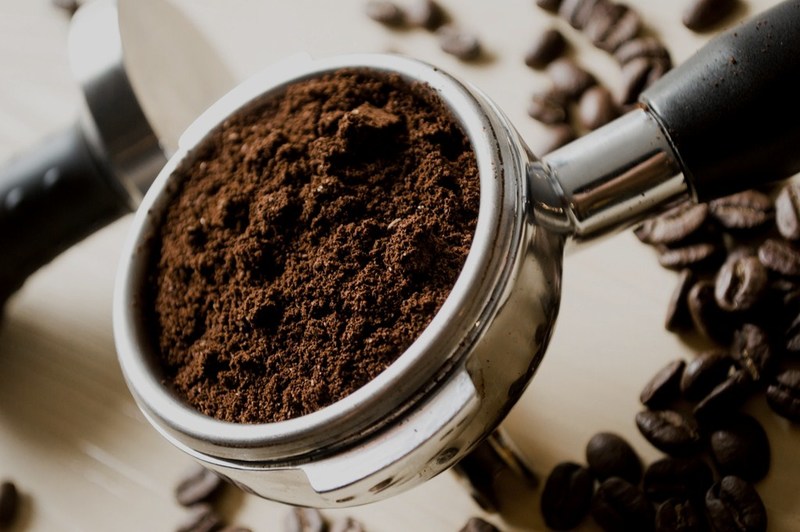The growth of cafes and a coffee-drinking culture have seen an increase in the demand for coffee nationwide. Coffee lovers have found a niche in the many coffee shops that have sprung up, both small and local brands to the larger international franchises. One coffee-lover has found a way to recycle used grounds into skin care products as part of her contribution to the fight against climate change.

Lianti Raharjo is crazy about coffee. Both at coffee shops and at home she has her own way to enjoy those beans that yield delicious drinks. When she’s home, after she brews the coffee and drinks it, she usually puts the coffee grounds into her various potted plants to compost.
The increase in coffee consumption does lead to questions about how coffee grounds are disposed by coffee shops or by households everyday. Something that weighed on Lianti’s mind. She believed that what we take from nature can be returned. In 2017, she started researching used coffee grounds and began developing used coffee grounds into simple skin care products, which she named Rebrew.
Before developing Rebrew, Lianti once had a brand of skin care products, Kohvee Story, which primarily used green coffee beans. A lecturer at a private university in Jakarta, she has extensive knowledge about coffee and has introduced her new brand as an alternate skin care option.
“We always take virgin sources or materials and then just throw them away. Like we do with coffee, after we drink it, the waste will end up in Bantar Gebang or other landfills. As we know, the waste doesn’t immediately turn into fertiliser or compost. Coffee grounds are organic waste, and they release methane gas and carbon dioxide which contributes to global warming or climate change. Coffee lovers of course always want to buy coffee at affordable prices, but if the earth gets warmer day by day, one of the impacts is arabica coffee farmers must go up much higher grounds to plant their coffee which can cause high prices. That’s why I want to make something useful with organic waste from used coffee grounds,” Lianti says.
Based on her observations, a coffee shop usually brews its coffee for only 30 seconds and the grounds are immediately disposed of in a bin. But those grounds are still clean because they were heated at high pressure and the nutritional content is still high. When Lianti and Rebrew’s team did some research on used coffee grounds, they found that the grounds still contained caffeine, minerals, vitamin C or ascorbic acid, fatty acid, antioxidants, total fenol, and protein. The composition was not very different from that of fresh coffee beans.
To get the best quality skin care ingredients, Lianti only takes fresh used coffee grounds that are processed by espresso machines which haven’t contaminated and mixed with other garbage, such as tissues or straws. For this, Rebrew collaborates with Anomali Coffee where Lianti and team usually take the used coffee grounds from its branches at Senopati or Menteng every evening at 10 p.m. Soon after collection, the used coffee grounds are immediately dried with a dehydrator, after which oils are extracted in a lab and sent to a manufacturer in Bali to be processed into skin care products.

So far, Rebrew has eight products, each of which have multiple purposes and is carefully formulated with spent coffee grounds extract oil and other natural ingredients. These include Miss You A Latte (Sunscreen SPF 25), Love You A Latte (Sunscreen SPF 25), Frappe Go Lucky All (Purpose Butter), You’re Brew-tiful (Cleansing Oil), Espresso Your Skin (Scrub), The Daily Grind (Hair & Body Wash), Bean Me Up (Clay Mask), and Just Brew It (Multi-tasking Skin Serum). For now, the products are sold via online retailers Tokopedia and Shopee.
“Used coffee grounds are not ordinary waste. We can extend their life cycle and earn a profit. With the right method, we can make useful products like Rebrew. We also realise that it is a challenge to sell recycled products. It’s expensive. Now, we’re in a niche market for coffee lovers and those who are aware of the environment. But we are slowly entering the big market. Through our social media, we also educate people about waste and hope that there are people who can make other skin care products or other things which use waste as the main material,”Lianti says.

To develop Rebrew, Lianti has also collaborated with companies and NGOs by giving workshops on how to recycle coffee grounds into useful products. A month ago, Rebrew collaborated with Panda House By WWF-Indonesia and conducted a workshop “Coffee 3.0: Repurpose Used Coffee Ground (Lunch & Learn)” where participants learned to make candles using coffee grounds.
Lianti noted that she was inspired by the success stories of the founders of coffee-based skin care products, such as Frank Body from Australia and Grounded from England who learned to make their products from Bali.
“We will certainly continue to develop Rebrew products and other coffee-based products. As we can see, Taiwan, Australia, and America have developed products from coffee grounds like clothes, furniture and glass. The creations are unlimited,” Lianti says.






